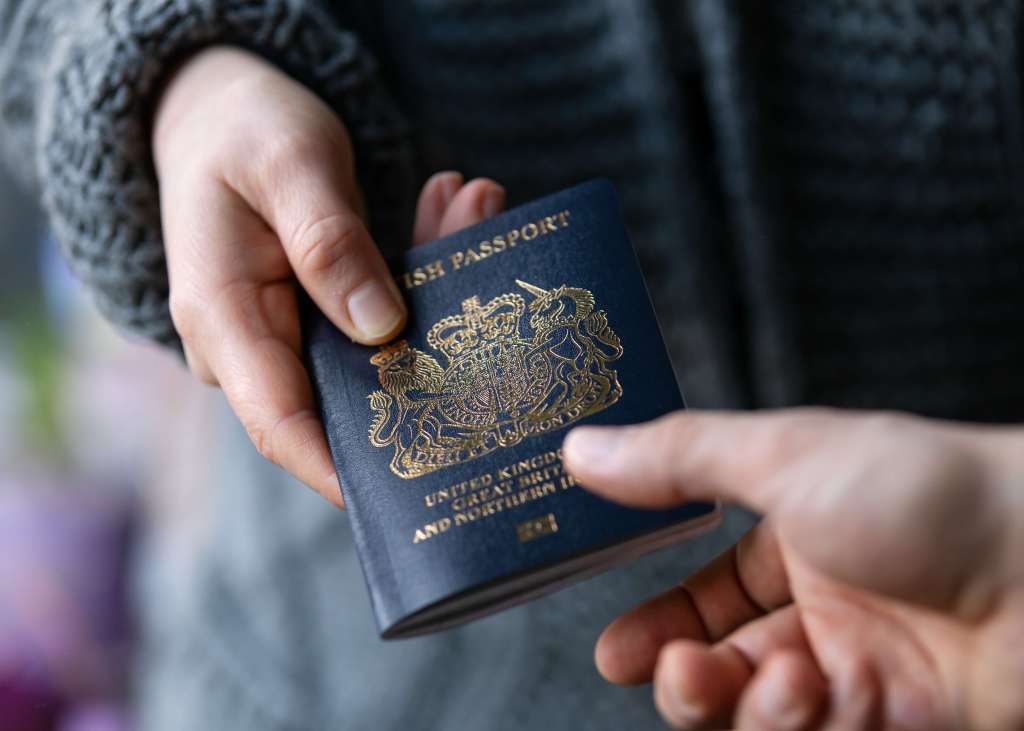Before a tenant moves into a landlord’s property they need to complete a right to rent check to verify their immigration status.
Read our right to rent guide for landlords to find out whose immigration status you need to check, which documents you can accept, and what could happen if you don’t comply.
We’ve outlined six key considerations to help you get started:
- Whose immigration status do you need to check?
- What are the rules for Ukrainian tenants?
- What right to rent documents can you accept?
- Can immigration checks be completed online?
- What do you need to look out for when checking identity documents?
- How do you make copies of identity documents?
What are right to rent checks?
The right to rent scheme was introduced as part of the Immigration Act 2014.
Put simply, it aims to make sure that all private tenants in England have the ‘right’ to rent their landlord’s property.
A tenant’s right to rent could be permanent, or it could be for a limited time due to their immigration status.
It’s up to landlords (or letting agents acting on their behalf) to check the immigration of all prospective tenants before they move in.
Failure to do so could result in a fine or custodial sentence.
When did right to rent checks start?
Right to rent first started as a pilot scheme in the West Midlands in December 2014. It was rolled out nationally in February 2016.
Since then, the scheme’s guidance has been updated regularly. The most recent version was published in April 2022 and you can read it on the government website.
How to do right to rent checks
Getting your immigration checks right is a crucial part of the pre-tenancy process. Read on for an overview of the steps you need to take.
Whose immigration status do landlords need to check?
When a tenant applies to rent your property, it’s a legal requirement to check their immigration status before you allow them to move in.
You’ll need to carry out a right to rent check for all prospective tenants over the age of 18.
Some tenants will have an unlimited right to rent, including:
- British or Irish citizens
- citizens with an EU Settled Status
- people with the ‘right of abode’ or ‘indefinite leave to remain’
- people with no limit on the time they can stay in the UK
Other tenants will have a time limit on their right to rent in the UK. When checking their immigration status, you’ll need to take a note of how long they’re allowed to stay for and then complete a follow-up check before the end of that time.
It’s important that landlords don’t discriminate and only check the immigration status of tenants they believe not to be British citizens. If you’re found to discriminate when completing immigration checks, you could face legal action.
What are the rules for Ukrainian tenants?
In response to the war in Ukraine, the government launched the Homes for Ukraine Scheme in March 2022.
The scheme allows Ukrainian nationals to stay with British residents for up to three years, allowing landlords to provide accommodation to those in need.
Applicants to the scheme who have a valid Ukrainian passport can gain access to the UK for six months without having to submit biometrics or visit a visa application centre.
These people have a time-limited right to rent for 12 months, with landlords expected to complete a follow-up immigration check when this period is coming to an end.
There are more details on how the scheme works and the rules landlords need to follow on the government website.
Right to rent checks are sometimes complex and the consequences can be serious if you don’t do them properly. If you’re unsure about any part of the process, you should get professional legal advice.
If you have legal expenses insurance as part of your Simply Business policy, you have access to a legal advice helpline through Arag Businesslaw. You’ll just need your voucher code found in your policy documents to register.
Right to rent documents – what can landlords accept?
There are several documents you can accept from tenants to complete a right to rent check. These include:
- a valid passport or travel document that shows the holder is allowed to stay in the UK
- a valid immigration status document issued by the Home Office
- a certificate of registration or naturalisation as a British citizen
- a birth or adoption certificate issued in the UK
This list isn’t exhaustive. There are plenty more documents you can accept that are outlined in the government guidance.
What documents can’t be accepted?
In April 2022, Biometric Residence Cards, Biometric Residence Permits, and Frontier Worker Permits were removed from the list of accepted documents for immigration checks.
If a prospective tenant presents one of these documents, you’ll need to use the Home Office’s online portal to check their immigration status.
To use this service, tenants will need to enter their details. They’ll then be provided with a ‘share code’ to give to their landlord. The landlord then enters this into the portal to check their immigration status.
Meanwhile if your prospective tenant has an outstanding case with the Home Office, you can use the landlord’s checking service to see if they have the right to rent in the UK.
Immigration checks can be completed in person or online
Before the Covid-19 pandemic, all right to rent checks needed to be completed in person. However, the success of temporary measures introduced during the pandemic mean checks can now be done via video call.
These documents must then be checked against the tenant’s identity, either in person or on a video call.
If you need to use the landlord checking service or online portal, you’ll still need to do this in the presence of the prospective tenant (either in person or online).

djile/stock.adobe.com
Checking identity documents – what to look out for
When checking your prospective tenants’ identity documents, it can sometimes be difficult to work out whether they’re genuine.
Here are some of the key things to look out for:
- matching names – if they don’t, the tenant will need to provide a valid reason
- damaged documents – if the identity document is or looks like it’s been changed, it could be fraudulent
- matching birth dates – make sure the birth dates on the tenant’s application and identity document are the same
- realistic dates – if a tenant looks a lot younger than their document suggests, they may be being fraudulent
Making copies of identity documents
After you’ve checked prospective tenants’ documents, you’ll need to make a copy of them.
The copy needs to be something that can’t be changed, such as a photocopy or high quality photo.
It’s important to keep a record of the date you made the copy. Copies of documents should be kept for as long as the tenant lives in your property and a year after they leave.
Remember to follow GDPR regulations when making copies of documents and speak to an expert if you’re worried about data protection.
What are the penalties for non-compliance with the right to rent scheme?
You could receive a five-year prison sentence or fine up to £20,000 if the Home Office suspects you had ‘reasonable cause’ to believe one of your tenants didn’t have a legal right to rent in the UK.
This could include letting to the tenant even though:
- they weren’t allowed to stay in the UK
- their permission to stay in the UK had expired
- the identity documents they provided were fake or included false information
You could also be fined if you can’t prove that you completed a right to rent check. This is why it’s so important to complete checks in the presence of the tenant and keep records of the documents you’ve checked.
Since April 2024, the updated right to rent penalties are as follows:
- for a first breach, the civil penalty for landlords will be raised from £1,000 per occupier to up to £10,000 per occupier
-
any repeat breaches will be up to £20,000 per occupier (previously £3,000)
Do you have any unanswered questions about right to rent checks? Let us know in the comments below.
More guides for landlords
- Landlord checklist – what to do before renting out a property
- Revealed: the challenges of new EPC rules for landlords
- Buy-to-let mortgage rates explained
- What is the difference between buildings and contents insurance?
Get set with tailored landlord cover
Over 200,000 UK landlord policies, a 9/10 customer rating and claims handled by an award-winning team. Looking to switch or start a new policy? Run a quick landlord insurance quote today.
Maksims/stock.adobe.com
